Scopus list of Hope Center faculty members’ publications for the week of July 14, 2024
Tag: Randall Bateman
Hope Center Member Publications: June 30, 2024
Scopus list of Hope Center faculty members’ publications for the week of June 30, 2024
Hope Center Member Publications: June 16, 2024
Scopus list of Hope Center faculty members’ publications for the week of June 16, 2024
Hope Center Member Publications: June 2, 2024
Scopus list of Hope Center faculty members publications for the week of June 2, 2024
Hope Center Member Publications: May 12, 2024
Scopus list of Hope Center member publications for the week of May 12, 2024
Hope Center Member Publications: May 5, 2024
Scopus list of publications for May 5, 2024
Hope Center Member Publications: April 21, 2024

Scopus list of publications from the week of April 21, 2024
Hope Center Member Publications: April 7, 2024
Scopus list of publications for April 7
Hope Center Member Publications: March 31, 2024
Scopus list of publications for March 31, 2024
Hope Center Member Publications: March 24, 2024
Scopus list of publications for March 24, 2024
Hope Center Member Publications: March 17, 2024
Scopus list of Hope Center member publications for the week of March 17, 2024
Hope Center Member Publications: March 4, 2024
Scopus list of publications for March 4, 2024
Alzheimer’s blood test performs as well as FDA-approved spinal fluid tests
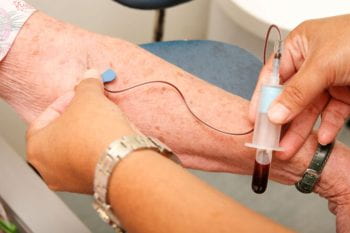
Could make early Alzheimer’s diagnosis, treatment accessible to more people
Hope Center Member Publications: February 18, 2024
Scopus list of publications for February 18, 2024
Newly opened Jeffrey T. Fort Neuroscience Research Building dedicated

Dozens of noted scientists, philanthropists, and university, state and local leaders gathered Jan. 18 to celebrate the dedication of one of the world’s largest neuroscience research buildings, a gleaming state-of-the-art facility on the Washington University Medical Campus. They toured its sophisticated, newly christened labs; listened intently as Washington University scientists described the lifesaving work they […]
Hope Center Member Publications: December 31, 2023
Scopus list of publications for December 31, 2023
Hope Center Member Publications: December 10, 2023
Scopus list of publications for December 10, 2023
Hope Center Member Publications: November 19, 2023
Scopus list of publications for November 19, 2023
Hope Center Member Publications: November 5, 2023
Scopus list of publications for November 5, 2023
Hope Center Member Publications: October 29, 2023
Scopus list of publications for October 29, 2023
Hope Center Member Publications

Scopus list of publications for August 20, 2023
Hope Center Member Publications

Scopus list of publications for August 13, 2023
Tau-based biomarker tracks Alzheimer’s progression
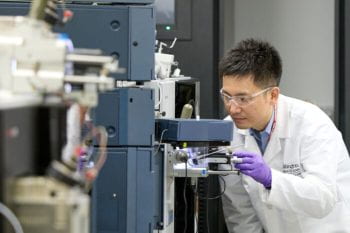
Two pathologies drive the progression of Alzheimer’s disease. Early on, amyloid beta plaques lead the way, but around the time cognitive symptoms arise, tau tangles take over as the driving force and cognition steadily declines. Tracking the course of the disease in individual patients has been challenging because there’s been no easy way to measure […]
Hope Center Member Publications

Scopus list of publications for July 9, 2023
Hope Center Member Publications

Scopus list of publications for June 4, 2023
Hope Center Member Publications

Scopus list of publications for May 28, 2023
Hope Center Member Publications

Scopus list of publications for May 21, 2023
Hope Center Member Publications

Scopus list of publications for May 7, 2023
Bateman to receive lifetime achievement award
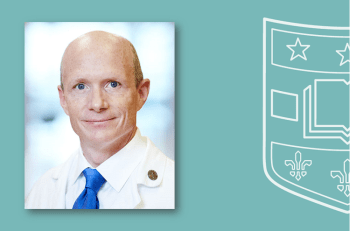
Recognized for contributions to Alzheimer’s disease research
Hope Center Member Publications

Scopus list of publications for April 30, 2023
Hope Center Member Publications

Scopus list of publications for April 16, 2023
Hope Center Member Publications

Scopus list of publications for March 26, 2023
Hope Center Member Publications

Scopus list of publications for January 30, 2023
Hope Center Member Publications

Scopus list of publications for December 26, 2022
Hope Center Member Publications

Scopus list of publications for December 12, 2022
Hope Center Member Publications

Scopus list of publications for December 5, 2022
Hope Center Member Publications

Scopus list of publications for November 27, 2022
Hope Center Member Publications

List of publications for November 6, 2022
What causes Alzheimer’s? Study puts leading theory to ‘ultimate test’
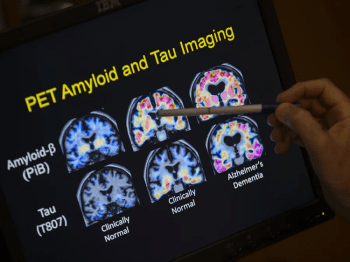
An idea that has propelled Alzheimer’s research for more than 30 years is approaching its day of reckoning. Scientists are launching a study designed to make or break the hypothesis that Alzheimer’s is caused by a sticky substance called beta-amyloid. The study will give an experimental anti-amyloid drug to people as young as 18 who […]
Hope Center Member Publications

List of publications for October 22, 2022
Hope Center Member Publications

List of publications for October 17, 2022
Hope Center Member Publications

List of publications for October 13, 2022
Cruchaga awarded Zenith Fellowship Award

Recognizes scientist’s contributions to Alzheimer’s disease research
Hope Center Member Publications

Scopus list of publications for September 4, 2022
Hope Center Member Publications

Scopus list of publications for August 29, 2022
Hope Center Member Publications

Scopus list of publications for August 21, 2022
Hope Center Member Publications

List of publications for July 26, 2022
Hope Center Member Publications

List of publications for July 18, 2022
New center’s aim: To ID biomarkers of neurodegenerative diseases
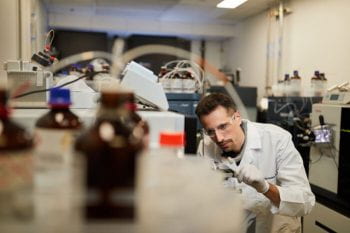
A new center established at Washington University School of Medicine in St. Louis aims to accelerate research into biomarkers of neurodegenerative conditions such as Huntington’s and Parkinson’s diseases, amyotrophic lateral sclerosis (ALS), multiple sclerosis (MS) and the so-called tauopathies, a group that includes Alzheimer’s disease along with rarer diseases such as frontotemporal dementia, corticobasal syndrome […]
Hope Center Member Publications

List of publications for July 5, 2022